Solution 1: Use UTF8 instead of Unicode
Well, this is an Encoding problem.
Encoding.Unicode is Microsoft's misleading name for UTF-16 (a double-wide encoding, used in the Windows world for historical reasons but not used by anyone else). http://msdn.microsoft.com/en-us/library/system.text.encoding.unicode.aspx (see this answer)
You should be using Encoding.UTF8.GetBytes instead.
Using js-sha256 library like this:
const jssha = require('js-sha256')
function hash(input)
{
const hashString = "0x" + jssha.sha256(input)
return hashString;
}
const hashResult = hash("StringIWantToHash")
// Output: 0x29c506d0d69a16e413d63921b7de79525c43715931d8d93127dbeb46eacda2f9
We can achieve pretty similar in C# just using UTF8 encoding:
public static string Hash(string input)
{
if (string.IsNullOrWhiteSpace(input)) return "";
using (SHA256 hasher = SHA256.Create())
{
// Convert the input string to a byte array and compute the hash.
byte[] data = hasher.ComputeHash(Encoding.UTF8.GetBytes(input)); // Note that UTF8 here
// Create a new Stringbuilder to collect the bytes
// and create a string.
StringBuilder sBuilder = new StringBuilder();
// Loop through each byte of the hashed data
// and format each one as a hexadecimal string.
for (int i = 0; i < data.Length; i++)
{
sBuilder.Append(data[i].ToString("X2"));
}
// Return the hexadecimal string.
return $"0x{sBuilder.ToString().ToLower()}";
}
}
static void Main()
{
var hashResult = Hash("StringIWantToHash");
// Output: 0x29c506d0d69a16e413d63921b7de79525c43715931d8d93127dbeb46eacda2f9
}
Also, I believe that other JS/React Native libraries that help to compute SHA256 hash use UTF8 encoding too, so I think you can use any other crypto libraries for that.
Solution 2: What if you need to use Unicode?
In that case, you need to manually represent C# encoding in JS code.
While you are using Unicode encoding, after every single byte in the string goes '0' byte if it is a plain Latin character. For other symbols (with more than 255 number) Unicode required 2 bytes for that.
var input = "StringIWantToHash";
var encodedInput = Encoding.Unicode.GetBytes(input);
// Output: [83, 0, 116, 0, 114, 0, 105, 0, 110, 0, ...]
So we need to represent that in our JS code:
const jssha = require('js-sha256')
function hash(input)
{
var bytes = [];
for (var i = 0; i < input.length; i++)
{
const code = input.charCodeAt(i);
bytes = bytes.concat([code & 0xff, code / 256 >>> 0]);
}
const hashString = "0x" + jssha.sha256(bytes)
return hashString;
}
const hashResult = hash("StringIWantToHash")
// Output: 0x029dbc4b54b39bed6d684175b2d76cc5622c60fe91f0bde9865b977d0d9a531d
